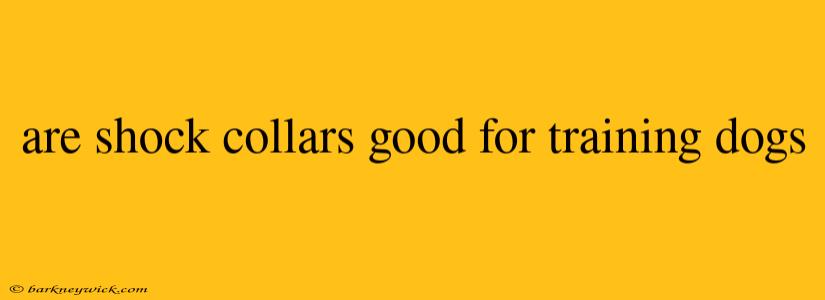Are Shock Collars Good for Training Dogs?
Shock collars, also known as e-collars, are controversial devices used in dog training. They deliver a static electric shock to the dog, intended to deter unwanted behavior. While some trainers advocate their use, many others, including veterinarians and animal welfare organizations, strongly oppose them.
Potential Benefits of Shock Collars
- Immediate and strong correction: The shock can quickly stop a dog from engaging in unwanted behavior. This is particularly helpful in situations where traditional methods have failed.
- Remote control: Shock collars allow for correction from a distance, which can be useful in situations where the dog is out of reach.
- Consistency: Shock collars can deliver consistent punishment for unwanted behavior, which some trainers believe can lead to faster learning.
Ethical and Welfare Concerns
- Pain and distress: Electric shocks can cause significant pain and distress for dogs, even at the lowest settings.
- Psychological harm: Repeated shocks can lead to fear, anxiety, and aggression in dogs.
- Lack of positive reinforcement: Shock collars focus solely on punishment, which can create a negative association with the owner and the training process.
- Risk of misuse: Shock collars can be misused by inexperienced or irresponsible owners, leading to potential harm to the dog.
- Alternative methods: Many effective dog training methods exist that rely on positive reinforcement and building a strong bond between the dog and owner. These methods are more humane and less likely to cause harm.
Conclusion
While some trainers believe shock collars can be effective in certain situations, the ethical and welfare concerns surrounding their use are significant. The pain and distress they cause, as well as the potential for psychological harm, should be carefully considered.
Instead of using shock collars, owners should prioritize positive reinforcement methods, which are more humane and effective in the long run. If struggling with training, seek professional help from a certified and reputable dog trainer who emphasizes positive reinforcement techniques.
